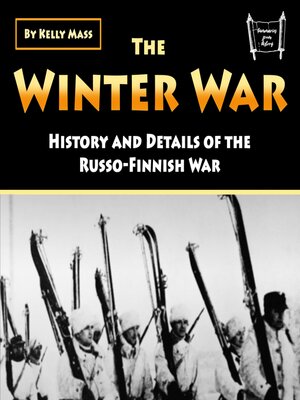
Sign up to save your library
With an OverDrive account, you can save your favorite libraries for at-a-glance information about availability. Find out more about OverDrive accounts.
Find this title in Libby, the library reading app by OverDrive.



Search for a digital library with this title
Title found at these libraries:
| Library Name | Distance |
|---|---|
| Loading... |
This audiobook is narrated by a digital voice.
The train carrying Soviet Foreign Minister Vyacheslav Molotov pulled into Helsinki's central station on October 12, 1939, its arrival marking what many Finns sensed would be their nation's last chance to avoid catastrophe. As autumn leaves swirled across the platform, Finnish officials prepared to meet with the man who held the power to determine whether their small Nordic democracy would survive the winter. The negotiations that followed would reveal the impossible choice facing Finland: surrender its independence through gradual submission to Soviet demands, or fight a war against overwhelming odds that seemed certain to end in national destruction.
The origins of the Winter War lay deep in the geopolitical convulsions that had reshaped Europe throughout 1939, as Adolf Hitler's aggressive expansion forced Stalin to secure the Soviet Union's vulnerable northwestern frontier. The Molotov-Ribbentrop Pact signed in August 1939 had secretly divided Eastern Europe between Nazi Germany and the Soviet Union, placing Finland within the Soviet sphere of influence while giving Stalin a free hand to address what he perceived as serious security threats along the USSR's extended border with the capitalist world. From the Soviet perspective, Finland's independence represented an intolerable strategic vulnerability that allowed potential enemies to approach Leningrad within artillery range.
The security concerns that drove Soviet policy toward Finland reflected genuine strategic anxieties rooted in Russia's historical experience of invasion from the west. Leningrad, the USSR's second-largest city and crucial industrial center, lay only thirty-two kilometers from the Finnish border, making it vulnerable to attack from Finnish territory in the event of a broader European war.







